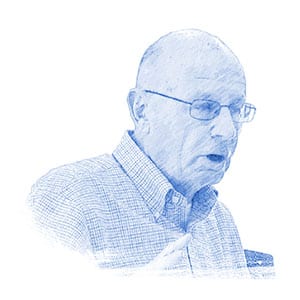Trust, loyalty, and interdependence have been keywords in numerous complaints and rants over the last few days, since the government decided in favor of its ultra-Orthodox colleagues and against overseas Jews.
There is no certainty in what comes next in this note, and it is not meant as a personal expression of exasperation or animosity toward any individual or group. It doesn’t come from a survey, but from what’s happened, and be heard and read over the course of years.
Despite our leaders’ daily exclamations of relying on the US and a few others, it’s hard to believe that Israelis feel a great deal of trust in anyone. That’s including one another, and more certainly any government or community outside of these fuzzy borders.
It’s wise to remember that roughly one-half of the population, with roots in Europe, has family ties to the Holocaust. And the other half of the population, with roots in the Middle East, has family ties to Muslim persecution.
Moving to a new country under the best of circumstances is not easy. Differences in language and culture from one’s previous home provide one set of challenges and likely frustrations. Others come from having to create new contacts, while not knowing how to break through whatever tensions and competitions exist for housing, work, or school.
Fleeing Europe or Muslim countries in the 1940s or early 1950s were not the best of circumstances. Each of the populations came to a new and poor country, about to or recently engaged in war. There wasn’t enough decent housing, money to pay for it, or jobs suitable to the qualifications of those who came. Stories of misfortune and frustration, including discrimination against just about every national group of newcomers, have been passed on and produced a high level of distrust in others among the newcomers themselves, their children, and their grandchildren.
Those histories have been renewed by experience with Palestinians. It’s not just the major waves of violence and the daily efforts of individuals to kill, but the routine claims of innocence heard from the families of killers, along with the incitement of violence and reverence toward the killers that comes from Palestinian leaders.
Then there are the frequent assertions of guarantee from whoever is on top of the American government.
In this case, the record is mixed and too complicated for a simple conclusion. But the negatives get in the way of comfortable reliance.
There’s been lots of money and military goodies, shared intelligence, and support in the UN and other international arenas. There have been frequent (non-binding) Congressional expressions in support, and a number of states and localities have expressed themselves against boycotts. However, the US administration provided less than full support in 1948, 1967, and 1973, as well as pressure against building plans over the 1967 lines. There’s also been a failure to accept Jerusalem as an Israeli city, much less the Israeli capital, and Obama’s political departure with a failure to veto an anti-Israeli declaration in the UN Security Council.
Our relations with overseas Jews have been mostly positive, but not entirely so. We’re aware of lessening support among younger overseas Jews, as well as shrill opposition by those akin to JStreet and more extreme voices of Jews who support BDS.
Israelis are closer culturally to the historic Jews of Europe and the Middle East than are assimilated Americans.
The Jews of Israel have learned to maneuver among opportunities, not always openly. Currently, the government is dealing, perhaps more successfully than the US, with Egypt, Jordan, Saudi Arabia, and Russia. Relations with European governments may be better than suggested by lip service paid to the Palestinian cause. Trump’s relations with Israeli officials are warmer than his relations with most American Jews.
We’re hearing about 60 separate militias fighting one another in the chaos that used to be Syria. Active in the fluid morass are the Assad regime, Russia, Turkey, Iran, the US, Saudi Arabia, and Israel. It ain’t easy knowing who’s on who’s side.
Let’s get back to our lack of trust among ourselves. It’s relevant to our complex relations with overseas Jews.
It only takes a bus ride from French Hill on line #77 that passes by Mea Shearim or line #68 that goes along Rehov Bar Ilan to remind a secular Jew how different are the ultra-Orthodox. Both those neighborhoods seem more Eastern European and early 20th century than anything associated with a western society well represented in the age of high-tech.
Yet the ultra-Orthodox vote, with a higher rate of turnout than any other sector of this society. And as democrats, we are inclined to accept the result of an election and the composition of a government coalition. That implies a recognition that many (perhaps most) of those folks living in Mean Shearim or on Rehov Bar Ilan look with wonder and scorn at non-Orthodox Jews (and perhaps at all Jews who are not ultra-Orthodox or followers of their community’s rabbis).
Secular Jews can outvote the ultra-Orthodox, but not overwhelmingly enough to elect a majority of the Knesset. The right of center parties has dominated recent governments. The Israeli Jewish left has pretty much ruled itself out of contention by too great an affinity with Palestinians who have proved themselves to be hopeless partners in one effort after another.
We’re stuck with a lack of trust between prominent Israeli Jewish sectors, as well as a lack of confidence in oversea liberal Jews who don’t accept the decisions that seem inherent in our democracy.
It may not be simple, pretty, or desirable, but it’s the Israeli condition.
We’re uneasy with ourselves, and more uneasy with others, which may be typically Jewish. Given the history of Jews and Israel, none of the above should surprise anyone.
Reprinted with author’s permission from The Jerusalem Post




